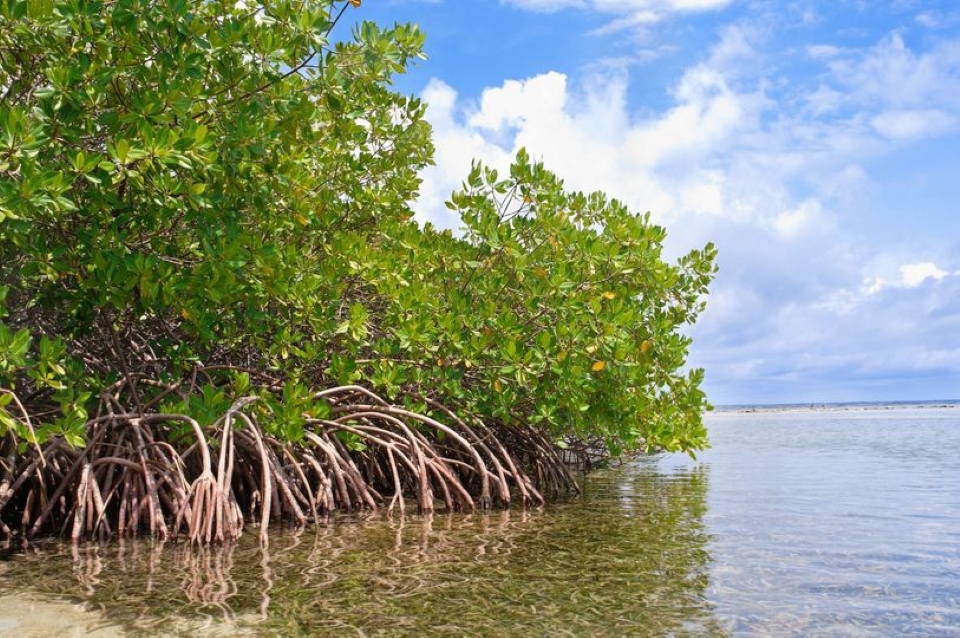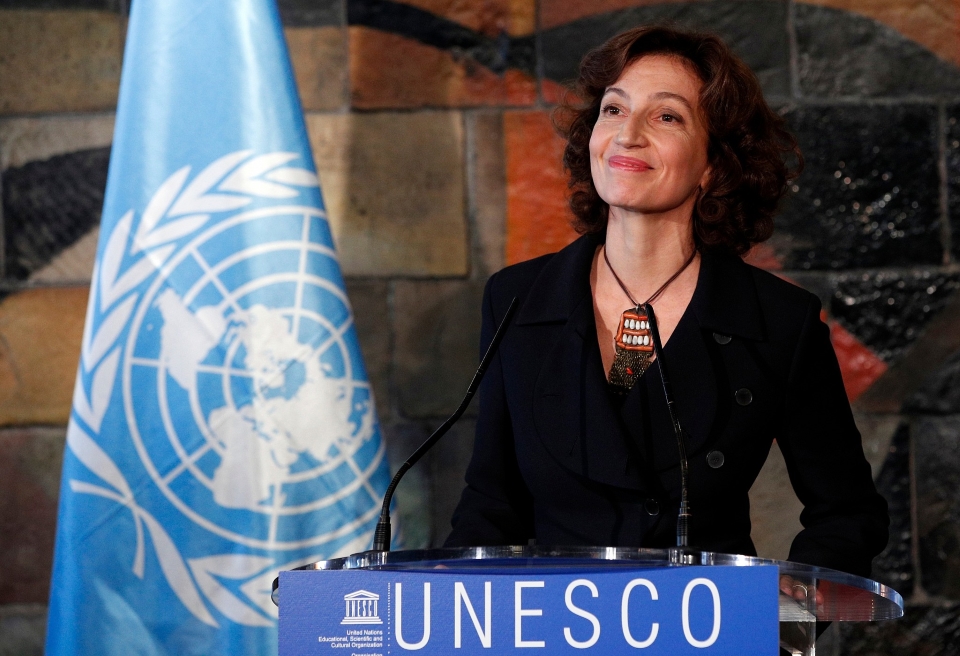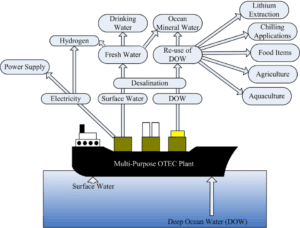Mangroves are a link between land and sea. Rooted in saline water and soils exposed to the tides, these plants form a rare and fragile universe; a haven of life that must be protected.
From their intertwining roots to the tips of their branches, mangroves are a complex habitat and one of the most flourishing ecosystems in existence where many species come to feed and reproduce. These environments are also vital for humans, as they not only protect seafood from predators but also slow down coastal erosion and curb the destructive power of storm surges – a real benefit at a time of growing climate disruption.
This is probably why the Colombian poet Tomas Gonzalez made these trees the symbol of his poetry collection entitled Manglares (Mangroves), which calls for a return to the essential unity of nature: “So that the trees first emerge and then blur and merge with the air, the landscape behind, the mudflats; /(…) /so that the gannet plunges into the sea in an instant sprinkled with salt, sun, glare; / and so that the sea first gleams and then once again merges with the land”.
However, mangroves are in danger: it has been estimated that more than three-quarters of the world’s mangroves are under threat along with all the aquatic and terrestrial organisms that depend on them. For this reason, UNESCO is acting to protect them and other valuable blue carbon ecosystems, through its networks of Biosphere Reserves, Global Geoparks and natural World Heritage sites.

Yet, in the face of the climate emergency, we must go even further, for mangroves also serve as key carbon sinks that we cannot allow to disappear. This is why a UNESCO project is restoring mangroves in seven Latin American countries—Colombia, Cuba, Ecuador, El Salvador, Mexico, Panama and Peru. This project will bring economic opportunities to communities and support the sharing of knowledge between local and indigenous populations and the scientific community.
UNESCO has also been supporting the growth of floating mangroves, while carrying out research on their carbon sequestration capacities at Lusail Marina in Qatar. Building on this idea, the University of New South Wales in Australia has embarked on a five-year research project with the University of the South Pacific to hone the concept in Fiji, with support from Swire Shipping and UNESCO.
Beyond protection and restoration, we also need global awareness. This is the spirit of the first International Conference on Mangrove Conservation and Restoration taking place in Abu Dhabi from 10 to 12 December this year, in which UNESCO is a partner. By raising awareness of the mysteries of mangroves, we can better preserve them.
Herein lies the objective of this Day: for everyone in our societies to become aware of the value, the beauty and the vulnerability of mangrove ecosystems and to commit to their protection.
Source: UNESCO




